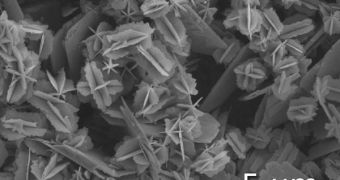A newly bioengineered peptide nanoparticle has the ability to pass through the blood-brain barrier and provide localized care to brain regions affected by meningitis, as well as by other antibiotics-resistant bacteria and pathogens. The breakthrough, accomplished by experts at the Institute of Bioengineering and Nanotechnology (IBN), in Singapore, has been reported in the latest issue of the respected scientific journal Nature Nanotechnology.
The stable nanoparticle has the ability to essentially seek and destroy any contaminants it has been programmed to find. Because of its very small size, it can penetrate the blood-brain barrier, where normal antibiotic molecules cannot, on account of their size. This ability offers hope for the creation of potential treatments for conditions such as meningitis and other brain infections. Additionally, an active component in the new cells has the ability to break through the pathogens' defenses, and attack them directly.
This method could potentially be combined with another innovative one, which makes use of eight-nanometer-large iron oxide nanoparticles to break through tough biofilms on implanted prosthetics. Also, the new particles made in Singapore could eventually be used as carriers for other molecules, albeit it will be difficult to create other molecules as small as them, so as to fit through the pores of the blood-brain barrier.
“Our treatment damages the structure of the pathogen and literally breaks it apart. Our oligopeptide has a unique chemical structure that forms nanoparticles with membrane-penetrating components on their surface. These nanoparticles can easily enter bacteria, yeast or fungal cells and destabilize them to cause cell death. For example, the nanoparticles cause damage to bacteria cell walls and prevent further bacterial growth,” IBN Group Leader Yiyan Yang, PhD, says. The IBN is but one of the institutes benefiting from funding coming from the Agency for Science, Technology and Research (A*STAR).
“We are able to kill bacteria better than conventional antibiotics. By attacking the cellular structure of the microbes, our nanoparticles can be used to successfully combat persistent bacterial infections,” Lihong Liu, PhD, also a scientist at IBN, adds. “Our interdisciplinary research groups have made tremendous progress in finding novel drug and gene delivery avenues for medical treatments. With this peptide nanoparticle, we have found a way through the blood brain barrier and produced a treatment for previously challenging diseases,” Jackie Y. Ying, PhD, the executive director at IBN, concludes.

 14 DAY TRIAL //
14 DAY TRIAL //